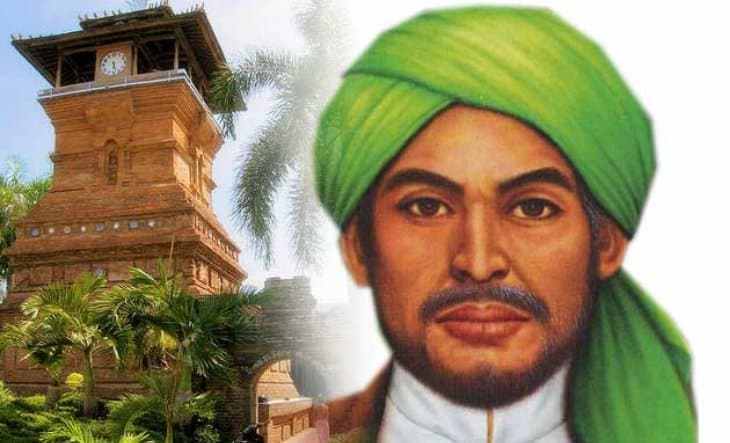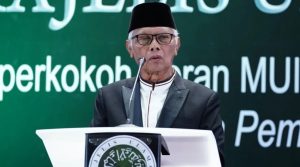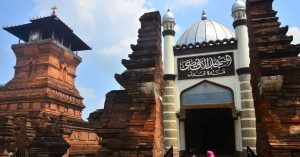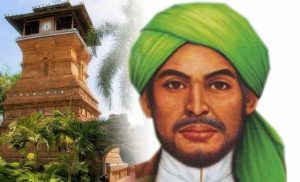The Sultanate of Demak, established in the late 15th century, was the first Islamic kingdom in Java. Once a vassal of the Majapahit Empire, Demak gained independence and emerged as a political and religious center for Islam in the archipelago.
Demak was founded by Raden Patah, also known as Sultan Alam Akbar Al-Fatah, born in Palembang in 1455 and ruling from 1475 until his death in 1518. Initially a duke under Majapahit authority, Raden Patah relocated to Demak and declared independence in 1478, laying the foundation for the Islamic polity.
Alliance with the Wali Songo
Raden Patah’s rise was supported by the Wali Songo, nine revered scholars who spearheaded the spread of Islam in Java. His greatest ally and mentor was Sunan Ampel, both his teacher and father-in-law. Raden Patah married Rara Mas Ratiyah Dewi Murthosimah, Sunan Ampel’s daughter, with whom he had three children; Raden Surya Fatih Yunus (Patiunus), Ratu Mas Asyqiah, and Raden Trenggono Abdurrahman.
Sunan Ampel, born Muhammad Ali Rahmatullah in the Champa Kingdom (present-day central-southern Vietnam), was part of a scholarly lineage linked to the Islamic networks of Southeast Asia and the Middle East. Champa itself, a vital stop along the Spice Route, maintained cultural and trade ties with Sriwijaya, Majapahit, and Arab merchants.
Also Read: The Forty-Four-Days of Glory: Azerbaijan’s Struggle for Justice and Peace
Demak’s Golden Age and Decline
The zenith of Demak’s power came under Sultan Trenggono (1521–1546), who expanded the sultanate’s reach to East and West Java and launched campaigns against Portuguese-held Malacca. His general, Fatahillah, famously captured Sunda Kelapa in 1527, renaming it Jayakarta (present-day Jakarta).
Sultan Trenggono’s death in battle against Blambangan in 1546 triggered a succession crisis. Political intrigue and assassinations followed, culminating in the rise and fall of Arya Penangsang and the eventual replacement of Demak by the Sultanate of Pajang as Java’s leading Islamic power.
Sunan Kudus: The Palestinian Connection
Among Demak’s most influential figures was Sunan Kudus, born Syarif Ja’far Shadiq Azmatkhan, son of Sunan Ngudung (Sayyid Utsman Haji), a Palestinian scholar and military commander from Baitul Maqdis (Jerusalem). Sunan Ngudung sailed from Palestine on a da‘wah mission, settling in Ampel Denta, Surabaya.
Also Read: Palestine Solidarity Month: A Collective Movement for Al-Aqsa and Palestine’s Freedom
While some traditions claim Sunan Kudus was born in Palestine and brought to Java by his parents, others suggest he was born in Central Java. Later in life, he is said to have made a pilgrimage to Palestine, reconnecting with his ancestral homeland.
The name Ja‘far Shadiq reflects his noble lineage, tracing back to Imam Ja‘far al-Sadiq, son of Muhammad al-Baqir, grandson of Ali ibn al-Husayn Zayn al-‘Abidin, great-grandson of Ali ibn Abi Talib and Fatimah al-Zahra, the daughter of the Prophet Muhammad ﷺ.
Military and Judicial Service
Sunan Ngudung’s military acumen earned him dual roles in Demak as both Commander-in-Chief and Imam of the Great Mosque of Demak. His expertise in warfare was so esteemed that Sunan Ampel once recommended him to train Majapahit’s elite troops.
Historical records also mention that sixty Muslim soldiers, gifted by Majapahit to the ruler of Gel Gel in Bali, were likely trained under Sunan Ngudung’s command, indicating his influence beyond Java.
Also Read: Hassan al-Turabi: A Controversial Thinker from Sudan
Succeeding his father, Sunan Kudus became Demak’s chief military commander during the reign of Sunan Prawoto and later served as a close adviser to Arya Penangsang. He also held the position of Qadhi (Islamic judge), making him both a spiritual and political authority in the sultanate.
Source: Hubungan Indonesia & Palestina by Imaam Yakhsyallah Mansur and Ali Farkhan Tsani, MINA Publisher, Jakarta, October 2024.
Mi’raj News Agency (MINA)
Also Read: Who Exactly is the RSF Group Shaking Sudan?





























 Mina Indonesia
Mina Indonesia Mina Arabic
Mina Arabic